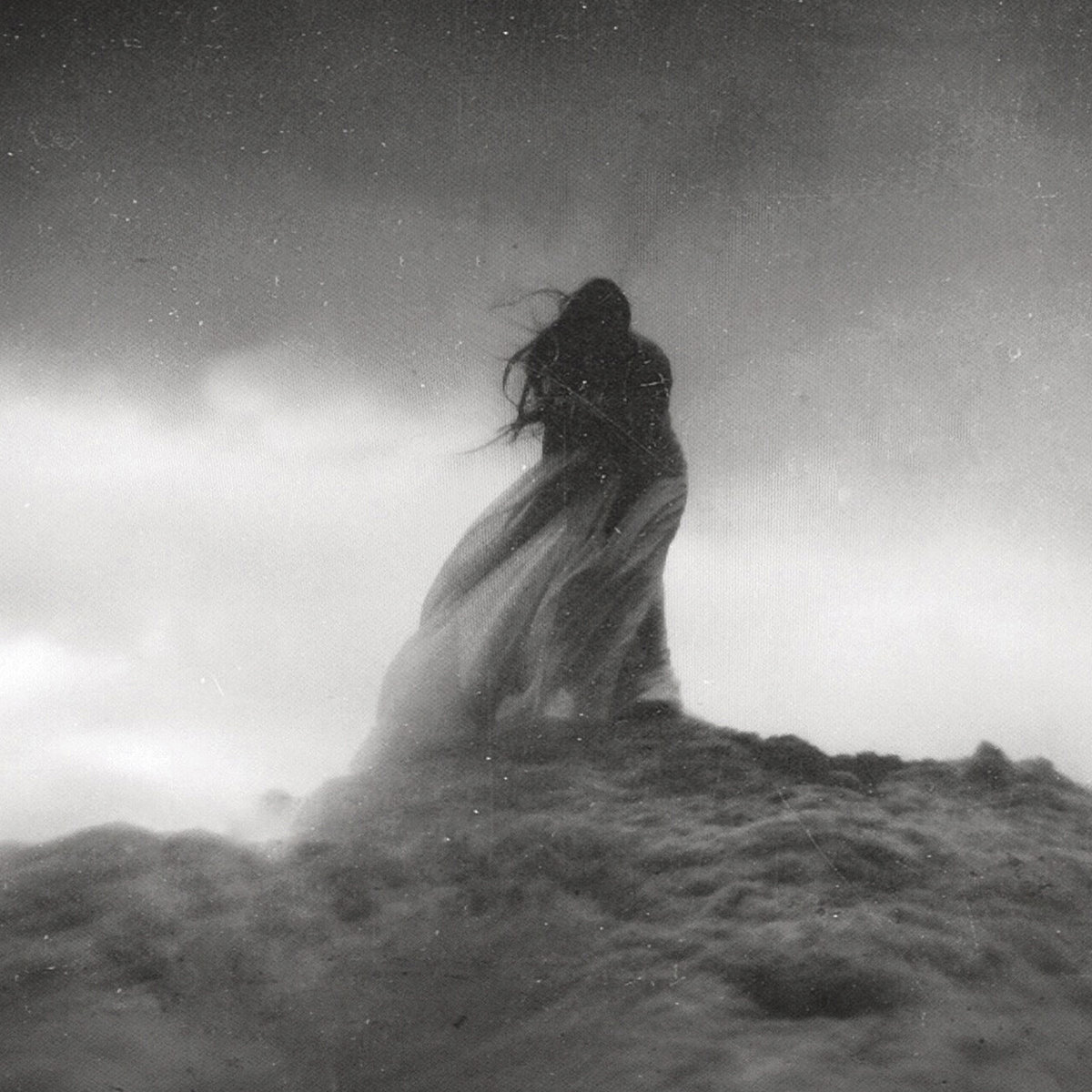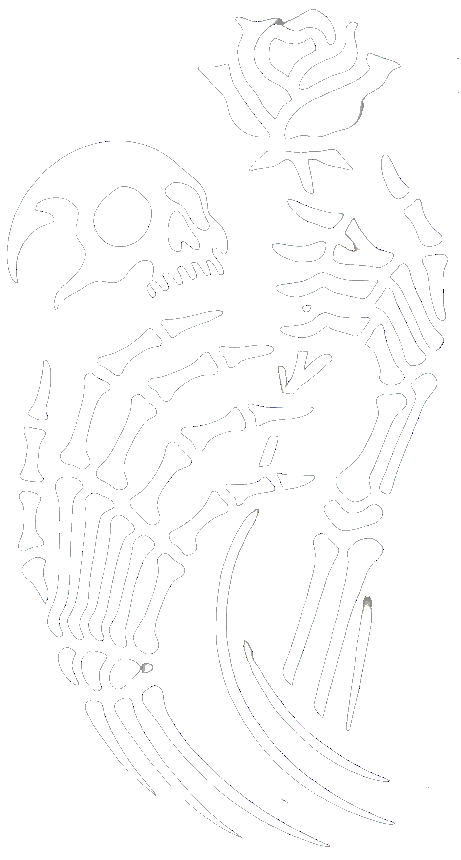Here we have a majestic work of sonic sorcery – a cross-referenced requiem resounding from the well-filled trough of downfall. The very carcass rotted away in the Icelandic nowhere before the winds carried its stench into the world. Vofa – that’s the name of both the band and the album – is an anonymous project whose title translates roughly as ghost or spirit. Little is known about its members, other than that they were previously active in various underground projects. The rest is music – beautifully hideous music. Grave whispers of dead demons who once courted guitarists and drummers of the devil.
a ghost of feedback and fragment
The rhythms fragment, decompose, and slide into one another – not through a steady reduction of speed into nothingness, but in a jazz-like space of meaning-drained sequences of isolated rhythmic figures. The guitar work gazes at times toward Finland, then to Norway and Sweden, and then again toward New Orleans. Here, Bohren & der Club of Gore waltz with Thergothon to reminiscences of the song of the swan song. Vofa sounds like an aftermath – like a funeral doom recollections of DSBM and sludge: here a shriek, there a tormented wail, a melody washed over by feedback, then long passages of sluggish, pulsating basslines, punctuated by tom-tom capers of archaic, folkloristic, even archetypal grace – with the faintest breath of Neurosis.
Released on Funere – one of the most promising young labels of this niche genre in the pre-Ukraine-invasion years – Vofa has retained an exceptional status to this day. Not because there are no other acts, like Starboard or Abyssal, who skillfully merge dark jazz with funeral doom, or bands such as Omination who carry the genre forward, but because the detached nebulousness – the decaying, spectral shapelessness – of this album remained a singular event.
All of it fades, dissipates: the stench of the corpse in the ether, a ghost of feedback and fragment. Derrida would have spoken of hauntology – that condition in which absence is more present than being itself. The album resounds from a space it creates on its own: an acoustic sky burial, where every string, every strike, every drone marks the trace of an existence emerging from non-being. What sounds here is not the kingdom of the dead or the yearning for death, as with Nortt, but dying itself – the last breath, the fading consciousness, the germinating nothingness within the I. Neither romantic nor terrifying – only the void presenting the void.
after the end of sensation
Yet Vofa does not remain within the world of signs – it dismantles the very body that bears them. The rhythms that intertwine and fold into one another, the riffs that corrode themselves, the voices that can barely be called human – all work toward the dissolution of the organism, toward a body of sound that is no body at all. In Deleuze’s words: a body without organs, a pulsating tissue of intensities that resists all form. Vofa is an echo of sensation after the end of sensation.
Within this decay, this state of falling apart – this Schrödingerian being/non-being – lies that truth which Adorno called the truth of the ugly: an aesthetic negation in which beauty appears only as the memory of what has been lost. Perhaps in Vofa it is this ungraspable feeling of having lost and been forgotten. The album sounds like the sedimentation of a vanished memory – the burial of funeral doom itself, a meta-funeral that lays itself to rest and resounds from non-being. The music finds its dignity precisely in nothingness. For where nothing reconciles and nothing holds, all that remains is the echo without sound – a trace from nothingness.

